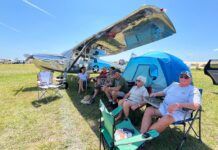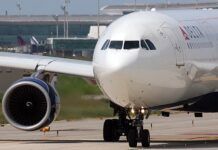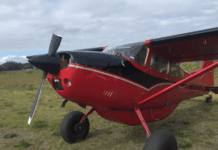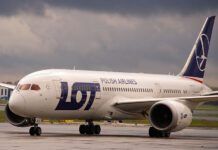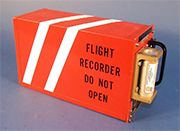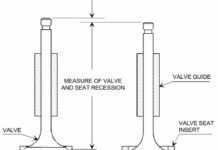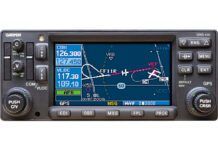
EASA Eases Up Flight Crew Licensing Regulations
The British Business and General Aviation Association (BBGA) has highlighted the fact that the European Aviation Safety Agency (EASA) is creating three Notices of Proposed Amendment (NPA) covering the introduction of EASA flight crew licensing (FCL) and flight operations. These are staggered, so that the first appeared in early June, with the others at monthly intervals concluding with Flight Operations on or about July 31.The three NPAs will be incorporated into legislation and become law no later than April 8, 2012. This date cannot be varied as it is already written into EC legislation. It is not certain, however, that all sections will have that as a compliance date and some compliance dates may be earlier than others. It seems likely that the EASA documents will come into force on or about April 8, 2009, for any new business, but compliance time will be allowed for existing business.For those involved in PPL training, instructors will not need to hold a commercial pilot’s license (CPL) nor have passed the CPL theoretical knowledge exams. This is a major change at EASA, which should bring more instructors into the fold.There will be no reference to the British IMC rating in the EASA proposals, but a new working group will be set up to work out a form of instrument qualification in recognition of the value of this rating in northern Europe. This will likely come as a new NPA at some future date, but existing IMC rating holders will be able to enjoy the privileges of their rating until EASA FCL compliance-time has expired.The BBGA Professional Flying Training Committee is currently organizing a series of meetings to which it is inviting members and non-members alike with the intention of helping to simplify the 800-page NPAs into digestible highlights and point out areas that it believes are important to the U.K. industry. Contact here for more information.
BBGA Update on Border Agency Issues
The BBGA is also working on keeping Britain’s borders accessible. Late in 2007 the U.K. government announced that it would strengthen the U.K.’s offshore border controls with new passenger-screening technology. The new U.K. Border Agency has very tight timelines, with implementation scheduled for the end of December.Immigration offices throughout the U.K. have clear instructions to tighten border security in keeping with these instructions. Arriving passengers must provide information of an external physical characteristic to verify their identity. All GA flights arriving must present passports to an immigration officer.The BBGA argues that continued, remote, pre-clearance of international travelers by the U.K. Border Agency on receipt of full and accurate advanced passenger information data is central to the ongoing success of GA/BA in the UK, and this will continue to drive the British economy. It is up to the users of these facilities receiving remote, pre-clearance services to ensure both timely and accurate data prior to arrival and departure to avoid any issues.BBGA has stated clearly to the U.K. Border Agency that proposed significant, additional, agency charges for ad-hoc services at locations and facilities will merely displace industry activity to remote locations, spreading Border Agency staff over a wider area and ultimately lead to less effective border controls.
Reversing LAPL Name Decision

300
IAOPA Europe reports that EASA has reversed its decision to rename the Leisure Pilots License into the Light Aircraft Pilot’s License, although the GA industry made it clear during the consultation phase that it was against the name, which may add a negative slant to GA pilots using “recreational” airfields. It was also hoped that a medical certificate from the family doctor would have been enough to obtain the new license; however, this has been amended to mandate that the family doctor must be a pilot, else the certificate must be signed by a doctor “… with aero medical knowledge” — i.e., a CAA doctor.
AOPA World Assembly Resounding Success
Yiouli Kalafati, president of AOPA Hellas was the driving force behind last month’s successful World Assembly in Athens. She wrote, “The 24th IAOPA world assembly and the First International General Aviation Expo at Tatoi Airfield were notable success, with participant and visitor numbers well ahead of expectations, specifically:
- 124 delegates from 26 countries;
- Four international aviation organizations;
- 60 exhibitors representing 108 companies of aviation interest;
- 20 internationally prominent conference speakers;
- First time in the country’s aviation history aerobatic pilots took part in the aviation show;
- 100 aircraft — 60 of them of foreign registrations — and visitors from every part of Greece, Europe and Middle East. (A further 45 aircraft cancelled the first five days due to weather conditions); and
- 30,000 visitors
A strong showing for the GA community in Europe, which bodes well for the future.
AOPA Netherlands Call to Action
AOPA Netherlands is asking pilots to sign a petition against Dutch plans to restrict airspace to VFR GA pilots. Holland is demanding the installation of new equipment in GA planes, including Mode-S, ELTs and 8.33 kHz radios. However, AOPA is fighting the closure of the Rotterdam TMA and the Special Rules Zones around the Schiphol CTR. The petition will be presented to the Board of Directors of Air Traffic Control Netherlands in September.
Tecnam Takes CAG

300
Italian manufacturer Tecnam has acquired 88 percent of the Spanish company Composite Aeronautic Group (CAG), which builds Toxo light aircraft.According to Tecnam, it will double the current production line of two-seater aircraft to 600 per year by the end of 2009. It can then build its new, four-seat, twin-engine P2006T, which is in the final certification phase.
Terror Threat from Light Aircraft?
Last month a British peer, Lord Carlile, voiced his concerns that light aircraft pose a greater threat to the U.K. populace than previously thought.He said that he is anxious about the “potential use of light aircraft as vehicle bombs against places of public aggregation.” However, he admits, “This is not founded on any particular intelligence, or on any operation as such. However, I know that some knowledgeable police officers and officials have ongoing concerns about the relative simplicity of terrorism conducted in this way, given the very large number of private aircraft and small airfields.”Home Secretary Jacqui Smith responded, “The Department for Transport has noted your flagging of the potential for small aircraft to be used as vehicle bombs, and your observation that there is presently no intelligence to suggest this forms part of terrorist thinking.”She pointed out that police forces are “proactive in providing support to airports hosting general aviation flights and flying schools, and during the year the DfT assisted the police National Counter Terrorism Security Office in producing a leaflet providing advice to general aviation operators and flying schools on how to deal with suspicious activity and concerns.”
Message for Deaf Pilots in the U.K. and Europe

300
Deaf British pilot John Donovan holds an NPPL and a Silver Gliding Medal and is studying for his assistant instructor’s license. There are three levels of gliding instructor’s licenses in the U.K. and the British Gliding Association agreed that John should skip the first and go straight to the second, so he will not have to keep flying with strangers.Although he will be able to teach anyone, his particular desire is to teach other deaf people to fly, or to teach instructors how to teach deaf people. John’s speech is clear and he can hear well with his hearing aids. He is a fluent signer, and can lipread. I can testify to that, having flown with him as his passenger in the front seat of a tandem trainer. In order to communicate, he places a small mirror like a car’s rear-view mirror on the canopy in front of the passenger. He can then lipread.John has been out twice to the International Deaf Pilots’ Association conventions in America, and is inspired by the achievements of pilots all over the world. He said, “I want to set up a group for deaf pilots in the U.K.” He has contacted the British Disabled Flying Association, who will put him in touch with other deaf aviators and invites any British deaf people who are interested in learning to fly to contact him.For more aviation news and information from Europe, read the rest of Liz Moscrop’s columns.














